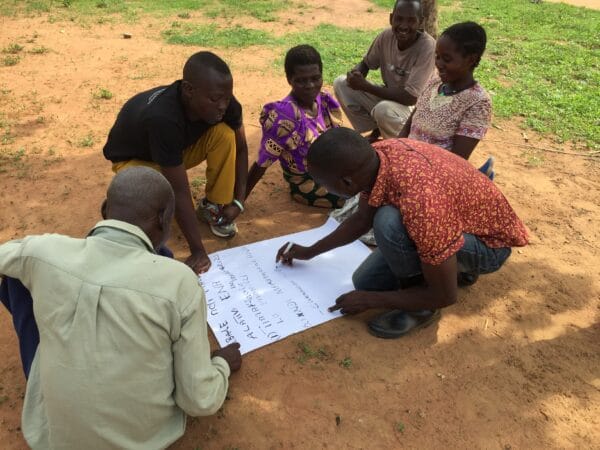
Term
- 4 years
Years
- 2015-2020
Direct Beneficiaries
- 50260
Implementation Partners
Financial Partners

Malawi’s agricultural sector employs nearly 90% of the working-age population, with the majority engaging in small-scale agriculture. Many farmers suffer from low productivity due to a reliance on rain-fed irrigation, low-quality inputs, insufficient agricultural extension services, limited access to markets, and inadequate financial services. Increasingly erratic weather conditions worsen their situation due to climate change. Over the years, the Soybean became a high-paying cash crop in Malawi after tobacco lost its value in recent years. Yet, despite their best efforts, farmers are not getting adequate returns from their soya to produce. They also incur losses by selling individually at low prices to vendors through intermediaries who cheat them using improper weigh scales.
The Farmers Union of Malawi, aided by CDF Canada, addresses these issues by building up the capacity of farmer co-operatives through a wide range of training to improve agricultural practices, governance, business planning, and marketing.
This four-year project led by the CDF Canada focuses on increasing the production of dietary staples – groundnuts, maize, and beans – and nutrient-rich soybeans, which are used as a fortifier and have commercial value as livestock feed.
The project aims to:
The project helped improve the economic well-being of small producers with an increase in household assets such as livestock, bicycles, and improved housing structure by most small producers within the INVEST Coop.
Through focus groups and structured observation, participants reported an increase in their income because of increased production, better markets, and other income-generating activities. This has resulted in improved household nutrition and more savings to pay for school fees and supplies, improving school attendance. There is also an increase in access to health care.
A total of 8,634 small-scale producers (4,651 women and 3,983 Men), out of the targeted 30,000 farmers (15,000 women and 15,000 men), have increased income through project activities. Such activities include increased production and income diversification through off-farm activities.
There are significant improvements in gender equality as the project targets 50% of women, recognizing improve women participation. In addition, a total 70% of women registered increased in confidence and self-awareness, 57% of women admitted improvements in their economic empowerment in production, and 65% noticed increases in women’s input into decision making and access and control over resources.


